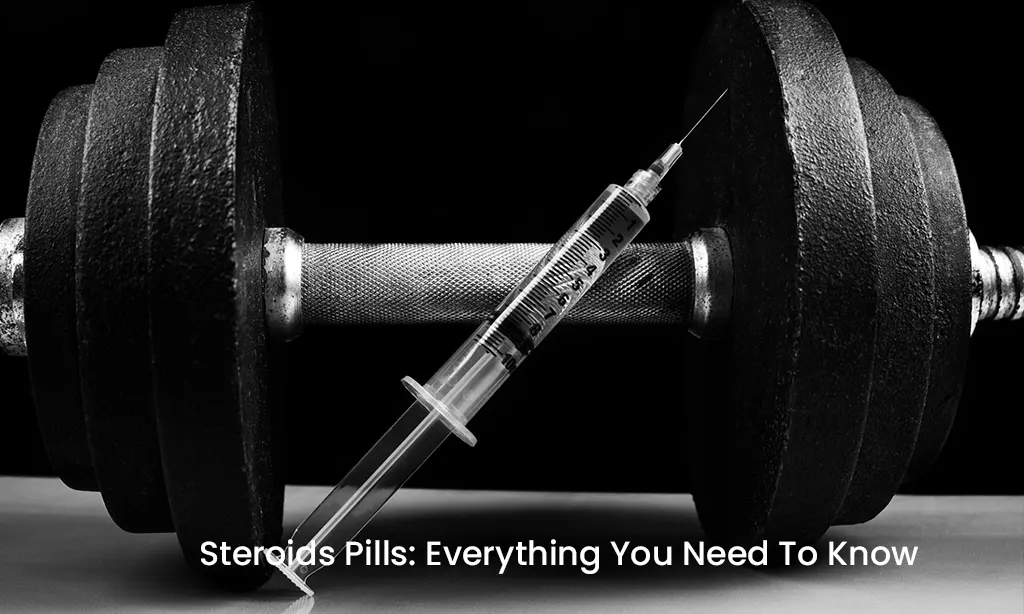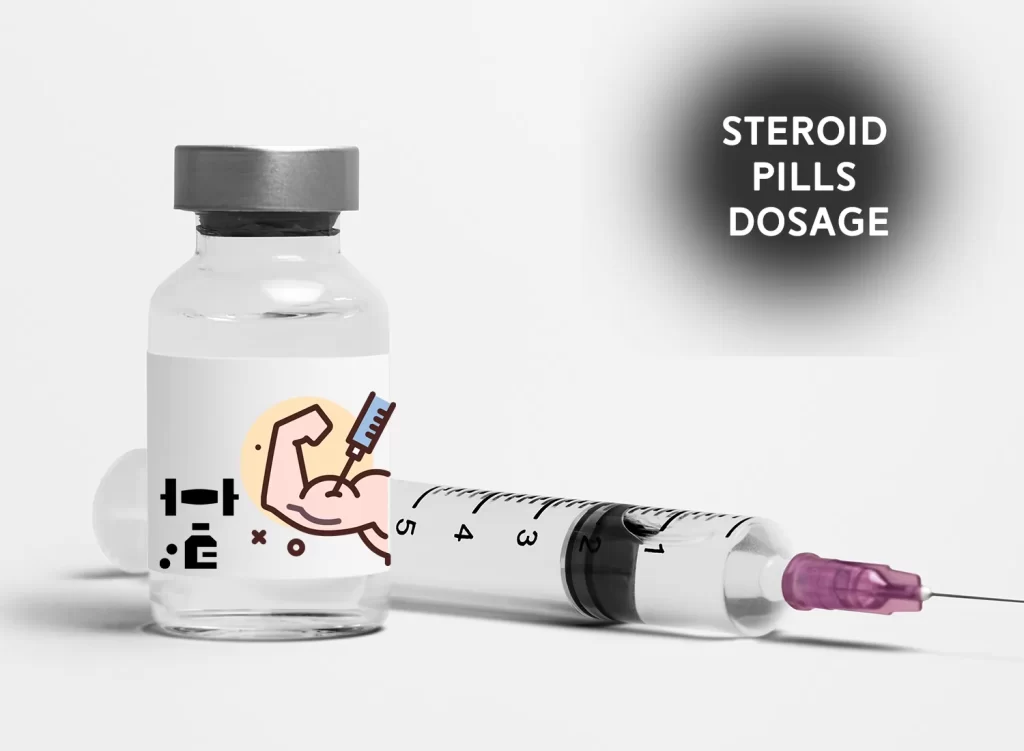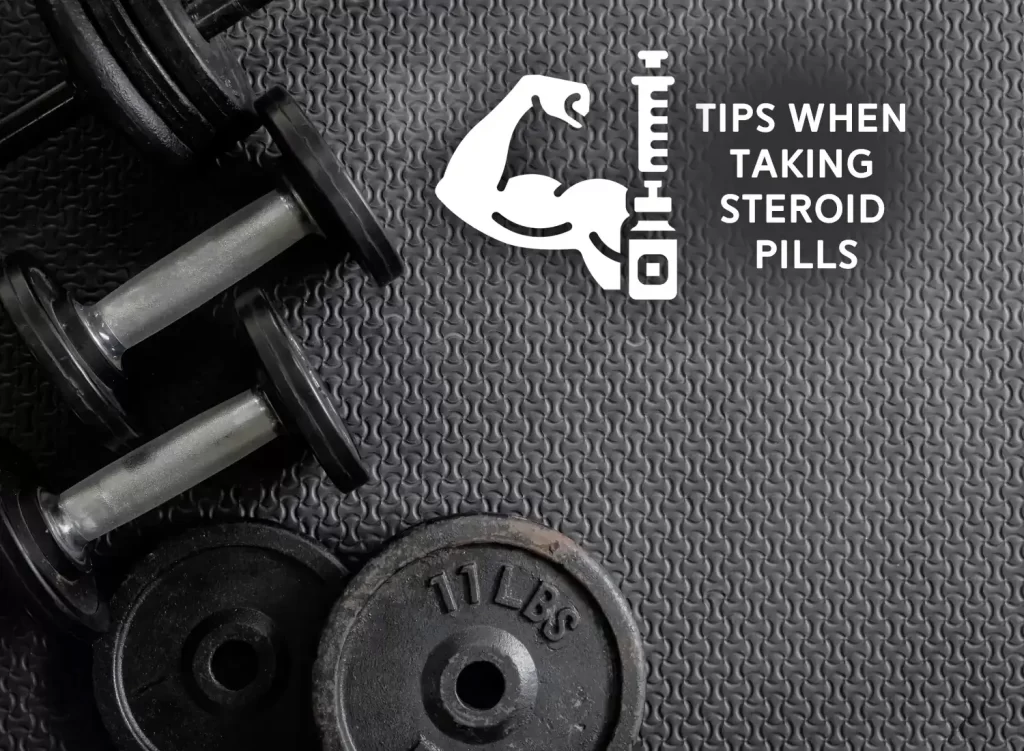Table of Contents
Steroids are powerful medicines that have been used for years to help treat diseases such as arthritis and asthma. Because of their powerful effects on cells, steroids have been used in medicine for many years, and some steroids are still being researched today. Corticosteroids act by suppressing inflammation and come in tablet form. These medications help reduce swelling and inflammation and ease symptoms in many conditions including allergies, asthma, arthritis, inflammatory bowel disease, and eye diseases. Your doctor may prescribe these tablets to help you get better faster or to prevent a condition from getting worse.
What Are Corticosteroids?
Corticosteroids are synthetic versions of the natural hormone, cortisol. They can be given by injection (subcutaneous), oral administration, or inhalation (in the form of nasal spray).
They have various roles in the body including controlling inflammation and metabolism. These drugs are prescribed for diseases that cause inflammation or irritation, such as arthritis and asthma. They may also be prescribed for people who have experienced an allergic reaction to a medication.
What are Other types of Steroids?
While corticosteroids are the most commonly used steroid pills, there are other types of steroids, such as anabolic steroids, that can come in pill form. Anabolic steroids are performance enhancers that athletes take to increase muscle mass, improve stamina, decrease recovery time between workouts and competitions. They also can be used for medical purposes in treating conditions such as anemia, inflammation, or endocrinological disorders.
Anabolic steroids have many functions, including regulating metabolism, blood pressure, and muscle function. However, because these drugs alter the body’s natural hormone levels, they can cause side effects. Some of the most common names include Anavar, Deca-Durabolin, Winstrol, and Oxandrolone.
What are The Possible Side Effects of Steroid Pills?
The majority of the time, a short course of oral steroids is associated with no side effects. For example, a 1- to 2-week course of antibiotics is frequently prescribed to relieve a severe asthma attack. This medication is usually tolerated without incident.
If you take oral steroids for a long period of time (more than 2-3 months), or if you take short courses on a regular basis, you are more likely to experience side effects.
The higher the dose, the greater the chance of experiencing side effects from the medication. If you require steroids on a long-term basis, it is important to use the lowest dose possible while still controlling symptoms. Some diseases necessitate a higher dose of medication than others in order to control symptoms. Even when treating the same disease, the dose required varies from person to person a great deal.
When you take anabolic steroids, you can gain muscle mass, but you can also put on weight and develop other medical conditions such as: high blood pressure, liver damage, diabetes, depression, heart problems, heart failure, kidney problems, stomach ulcers, prostate cancer, cataracts, and other eye problems.
Side effects of anabolic steroids can be dangerous and should be taken seriously. You should also be aware that anabolic steroids may cause weight gain. Talk to your healthcare provider if you have any concerns about using steroids, particularly if you plan to take them for a prolonged period.
Corticosteroids carry risk of side effects, too. Because oral corticosteroids affect your entire body rather than just one area, this method of administration is the most likely to cause serious side effects. The following side effects may occur depending on the dose of medication you receive:
- Swelling
- Increased Blood pressure
- Mood swings, memory, and behavior issues
- Stomach ache
- Weight Gain
Steroid Pills Dosage
Individual steroids, as well as the condition for which they are prescribed, will have a different effect on the body. For short courses, a relatively high dose is usually prescribed each day for a few days or a week or so, and then the medication is abruptly stopped at the end of the course, unless otherwise specified. If the medication is taken for more than three weeks, it will be necessary to gradually reduce the dose.
For those who must take oral steroids for an extended period of time, a common treatment strategy is to begin with a high dose in order to manage symptoms. Most of the time, the dose is gradually reduced to a lower daily dose that keeps the side effects at bay. The length of treatment varies depending on the disease being treated. If the condition improves, the steroid treatment may be reduced or discontinued altogether. In some cases, however, steroids are required for the rest of one’s life because symptoms return if the steroids are stopped.
The Most Popular Over The Counter Steroid Pills
The most common OTC steroid pills are the following:
Prednisone: Prednisone, a corticosteroid, is the active ingredient in several popular medications. It was first used to treat asthma and allergies. In recent years, it has been used to treat several autoimmune diseases, including lupus, rheumatoid arthritis, and Crohn’s disease. Prednisone also has an anti-inflammatory effect on tissues outside the immune system, such as bone, muscle, skin, eyes, and gastrointestinal tract.
Betamethasone: Betamethasone, or betamethasone sodium phosphate, belongs to a class of drugs called corticosteroids. Betamethasone is used to prevent inflammation of the skin caused by allergic reactions or other inflammatory diseases and conditions. It can also be used to prevent side effects such as itching or burning during radiation treatment. Betamethasone can be applied topically to your skin or it can be administered orally.
Dexamethasone: Dexamethasone is a corticosteroid and potent anti-inflammatory drug prescribed for treatment of certain diseases. Dexamethasone belongs to a class of drugs known as glucocorticoids or corticosteroids. It works by blocking the action of naturally occurring substances called hormones. This drug is used to treat conditions including inflammation, allergic reactions, ulcerative colitis, and adrenal insufficiency.
Hydrocortisone: Hydrocortisone is one of the common forms of corticosteroid treatment. It is also used for treating a range of conditions, including allergies, asthma, psoriasis, ulcers, arthritis, and dermatitis. The most common form of hydrocortisone is called oral Cortef. This form of hydrocortisone works by affecting the body’s immune system.
Deflazacort: Deflazacort is a steroid that is used to treat Duchenne muscular dystrophy (DMD) in adults and children over two years old. DMD is a genetic disorder that causes muscles to waste away. As these muscles weaken, patients become progressively weaker and more susceptible to injury. Deflazacort has the potential to slow the progression of weakness, prevent further muscle damage, and help patients maintain their mobility.
Methylprednisolone: Methylprednisolone is a steroid that belongs to the family of medications called corticosteroids. It has been used to treat a variety of disorders including arthritis, colitis, ulcerative colitis, multiple sclerosis and other inflammatory conditions. The medication was originally produced by Upjohn in 1957 and was approved by the FDA for sale in the U.S. in 1959. This drug reduces inflammation and swelling by blocking the synthesis of chemicals that produce swelling and pain. It works by decreasing the production of prostaglandins, which are hormones that promote inflammation. It’s used in the treatment of diseases such as arthritis and allergic reactions.
Tips When Taking Steroid Pills
While taking steroids, you should avoid taking anti-inflammatory pain relievers (such as ibuprofen) (unless advised by a doctor). The combination of the two increases the likelihood of developing a stomach or duodenal ulcer.
A steroid card, which should be provided by the person who prescribed or supplied the medication, is usually required for those who take steroids on a regular basis. They may also be required to wear a medical emergency identification bracelet or other similar piece of jewelry. In the event of an emergency, this will provide information about your dose, your condition, and so on. For example, if you are involved in an accident and are rendered unconscious, it is critical that the doctors know that you are taking steroids and that you must continue to take them on a regular basis.
If you are suffering from other illnesses, your steroid dosage may need to be increased for a short period of time. Take, for example, the case of someone who has a serious infection or is undergoing surgery. This is due to the fact that you require more steroids when under physical stress.
If you have any concerns about your steroid treatment, you should consult a doctor.
Final Thoughts
Steroids are powerful medications that can have serious side effects if not used correctly. They should be taken under the supervision of a doctor. There are many different types of steroids available, and each has different effects. When used appropriately, steroids can be extremely effective in the treatment of various illnesses. As a result, they have become an important part of our everyday lives. While the benefits of using steroids are many, there are also a number of potential risks associated with their use. If you are considering taking steroids, you should be aware of these risks and be willing to take the time to discuss them with your doctor.





